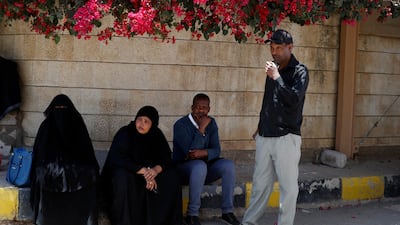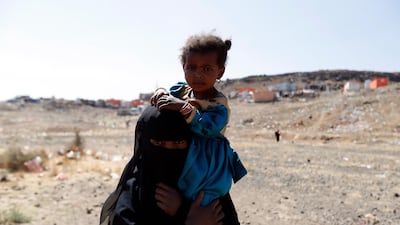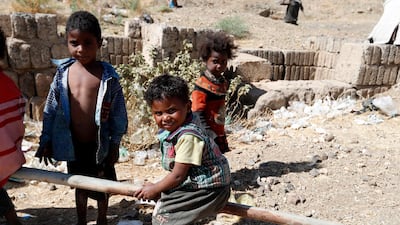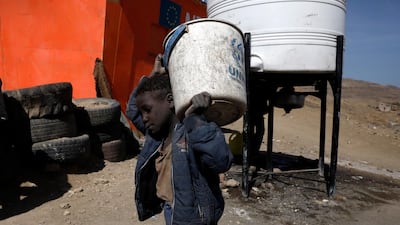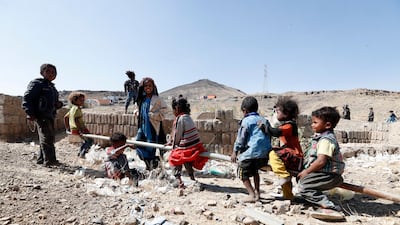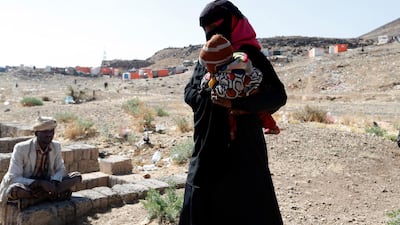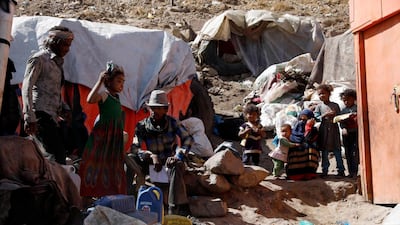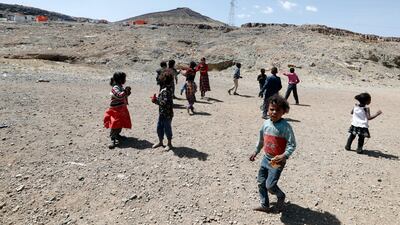A branch of the UN has blamed the Iran-backed Houthi rebels in Yemen for a fire at a migrant detention centre in Sanaa that killed at least 44.
The International Organisation for Migration said that the rebels presided over “inhuman” and “unsafe” conditions at the facility holding upwards of 900 detainees – including 350 people in a warehouse.
Survivors of the March 8 fire told The National said that Houthi guards started the fire following a protest over appalling living conditions. Survivors and local rights campaigners say the deadly blaze erupted when guards fired tear gas into the crowded warehouse.
The people, mostly from Ethiopia, were trying to cross Yemen for work in Gulf states but were stopped by the rebels and were being held at the detention facility.
“Conditions in the holding facility, which was three times overcapacity, were inhumane and unsafe,” said Antonio Vitorino, IOM’s director general.
At least 43 of the dead were buried in a Sanaa cemetery on Friday amid tight security. Women from the migrant community were seen screaming and crying while ambulances, carrying the bodies, arrived from a funeral service at a major mosque.
Abdallah Al Leithi, head of the Sudanese community in Sanaa, said many of the dead lacked paperwork that could identify them. Most “had not given their real names” on documentation before the fire, he said.
There were no immediate comments from the Houthis.
The UN migration agency has called for those responsible for the tragedy to be held accountable, said Olivia Headon, the agency’s spokeswoman in Yemen.
“We stand with the victims of the fire. Migrants urgently need more protection and support in Yemen, or we will continue to see them suffer and lives lost. A step in this direction is to ensure that the victims of the fire and their families have the accountability they deserve following the horrific incident,” she said.
Houthis prevent access
The Iran-backed Houthi rebels did not state the cause of the fire, mention a protest or give a final casualty toll.
They had said an investigation was opened but no conclusions have been announced. The Houthis also prevented the UN migration agency from accessing injured migrants at hospitals, the agency said.
The rebels also attempted to turn the blame on the IOM, accusing it of not providing shelter for migrants and transfer them to their home countries.
Mr Vitorino said, however, his agency “does not establish, manage or supervise detention centres in Yemen or anywhere else in the world.”
He said the IOM has been working to restart a voluntary return of migrants from Sanaa to Ethiopia, which he described as a “lifeline for many stranded migrants in dangerous situations.”
Yemen’s six-year-old civil war has not prevented migrants from entering the country, desperate to make their way to neighbouring Saudi Arabia to find jobs as housekeepers, servants and construction workers.
At least 138,000 migrants embarked on the arduous journey from the Horn of Africa to Yemen in 2019, but the figure plummeted to 37,000 last year because of the coronavirus pandemic.
Over 2,500 migrants reached Yemen from Djibouti in January, according to the IOM.
